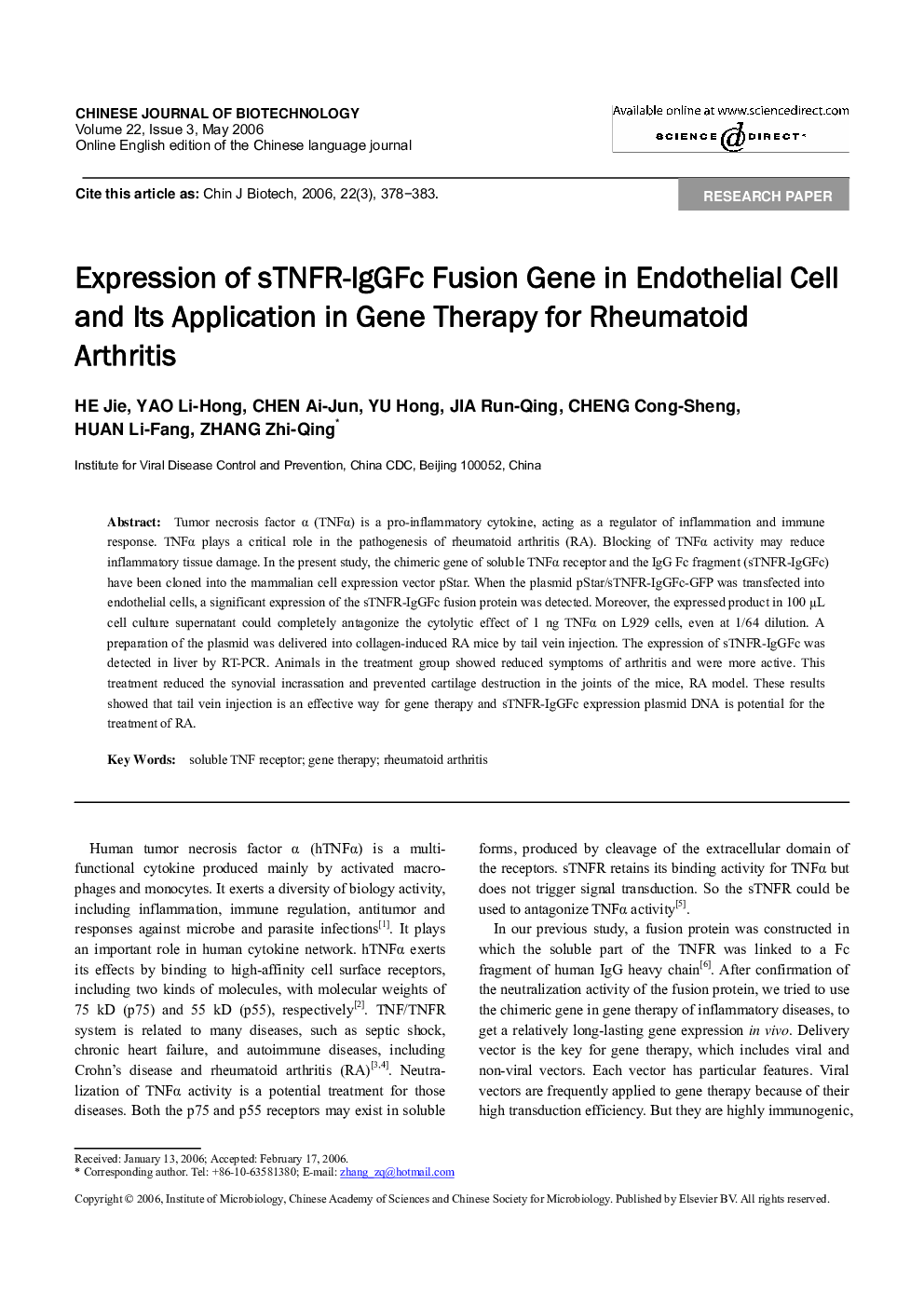| Article ID | Journal | Published Year | Pages | File Type |
|---|---|---|---|---|
| 2079061 | Chinese Journal of Biotechnology | 2006 | 6 Pages |
Abstract
Tumor necrosis factor α (TNFα) is a pro-inflammatory cytokine, acting as a regulator of inflammation and immune response. TNFα plays a critical role in the pathogenesis of rheumatoid arthritis (RA). Blocking of TNFα activity may reduce inflammatory tissue damage. In the present study, the chimeric gene of soluble TNFα receptor and the IgG Fc fragment (sTNFR-IgGFc) have been cloned into the mammalian cell expression vector pStar. When the plasmid pStar/sTNFR-IgGFc-GFP was transfected into endothelial cells, a significant expression of the sTNFR-IgGFc fusion protein was detected. Moreover, the expressed product in 100 μL cell culture supernatant could completely antagonize the cytolytic effect of 1 ng TNFα on L929 cells, even at 1/64 dilution. A preparation of the plasmid was delivered into collagen-induced RA mice by tail vein injection. The expression of sTNFR-IgGFc was detected in liver by RT-PCR. Animals in the treatment group showed reduced symptoms of arthritis and were more active. This treatment reduced the synovial incrassation and prevented cartilage destruction in the joints of the mice, RA model. These results showed that tail vein injection is an effective way for gene therapy and sTNFR-IgGFc expression plasmid DNA is potential for the treatment of RA.
Related Topics
Life Sciences
Biochemistry, Genetics and Molecular Biology
Biotechnology
Authors
HE Jie, YAO Li-Hong, CHEN Ai-Jun, YU Hong, JIA Run-Qing, CHENG Cong-Sheng, HUAN Li-Fang, ZHANG Zhi-Qing,
